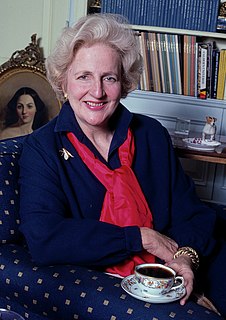A Quote by Arthur Schopenhauer
[T]he appropriate form of address between man and man ought to be, not monsieur, sir, but fellow sufferer, compagnon de miseres.
Related Quotes
"Recognising, as I do, that you are the second highest expert in Europe" "Indeed, sir! May I inquire who has the honour to be the first?" Asked Holmes, with some asperity. "To the man of precised, scientific mind the work of Monsieur Bertillon must always appeal strongly." "Then had you not better consult him?" "I said, sir, to the precisely scientific mind. But as a practical man of affairs it is acknowledged that you stand alone. I trust, sir, that I have not inadvertently--" "Just a little," said Holmes.
By whatever means it is accomplished, the prime business of a play is to arouse the passions of its audience so that by the route of passion may be opened up new relationships between a man and men, and between men and Man. Drama is akin to the other inventions of man in that it ought to help us to know more, and not merely to spend our feelings.
I'll need you to get a leash for my monkey, Claude, and also a hat." "Of course, monsieur" "Do you think he needs a little coat as well?" "Perhaps not in this weather, monsieur." "You are right," Magnus said with a sight. "Make it a simple dressing gown, just like mine." "Which one, monsieur?" "The one in rose and silver." "Excellent choice, monsieur.
A young apprentice applied to a master carpenter for a job. The older man asked him, "Do you know your trade?" "Yes, sir!" the young man replied proudly. "Have you ever made a mistake?" the older man inquired. "No, sir!" the young man answered, feeling certain he would get the job. "Then there's no way I'm going to hire you," said the master carpenter, "because when you make one, you won't know how to fix it.
We might think of dollars as being 'certificates of performance.' The better I serve my fellow man, and the higher the value he places on that service, the more certificates of performance he gives me. The more certificates I earn, the greater my claim on the goods my fellow man produces. That's the morality of the market. In order for one to have a claim on what his fellow man produces, he must first serve him.
Therefore the good man ought to be a lover of self, since he will then both benefit himself by acting nobly and aid his fellows; but the bad man ought not to be a lover of self, since he will follow his base passions, and so injure both himself and his neighbors. With the bad man therefore, what he does is not in accord with what he ought to do, but the good man does what he ought, since intelligence always chooses for itself that which is best, and the good man obeys his intelligence.
Of all the differences between man and the lower animals, the moral sense or conscience is by far the most important. This sense, as Mackintosh remarks, "has a rightful supremacy over every other principle of human action"; it is summed up in that short but imperious word "ought," so full of high significance. It is the most noble of all the attributes of man, leading him without a moment's hesitation to risk his life for that of a fellow-creature; or after due deliberation, impelled simply by the deep feeling of right or duty, to sacrifice it in some great cause.








































